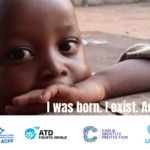
Policy Brief 2: Child’s right to identity in alternative care
Without access to the relationships and information relevant to forming a cohesive identity, children systematically face a range of challenges – legal, psychosocial and medical – throughout their life. Losing the connections and family relations that are essential for maintaining lifelong relationships to parents, siblings, friends, as well as community and wider social networks can have significant implications for the child’s psychosocial and emotional well-being as well as result in loss of protective networks and sense of belonging that are critical as they become adults. The lack of documented identity invariably creates problems for children accessing basic rights such as education, health, development, social services, social security, access to justice and they are also at greater risk of being sold, trafficked and being recruited into armed groups (e.g. Articles 12, 24, 26, 28, 32 CRC). Without formal recognition of the child’s identity, such as their name and family relations, it may be subjected to arbitrary changes, when in an alternative care setting. It is therefore important that efforts are made to preserve the child’s identity in family relations by preventing unnecessary separation (section 1), the child’s identity is restored when unnecessary separation occurs that results in its improper modification (section 2) as well as specific attention to the child’s identity in humanitarian and migration contexts is made (section 3).
When these dual goals of finding suitable quality care and preserving the child’s identity are not achieved, the lifelong impact for the child and the wider society, causes significant damage. Child Identity Protection (CHIP) hopes that this policy brief will help foster an understanding that the provision of quality alternative care, requires that the child’s right to identity is safeguarded. In particular, this policy brief aims to contribute to the achievement of Sustainable Development Goals (SDG) on eliminating poverty (SDG 1), access to justice (SDG 16.3) and legal identity for all (SDG 16.9). CHIP will continue to work to ensure that every child and later adult, that has been in care, has full access to their origins, including remedies when necessary.






